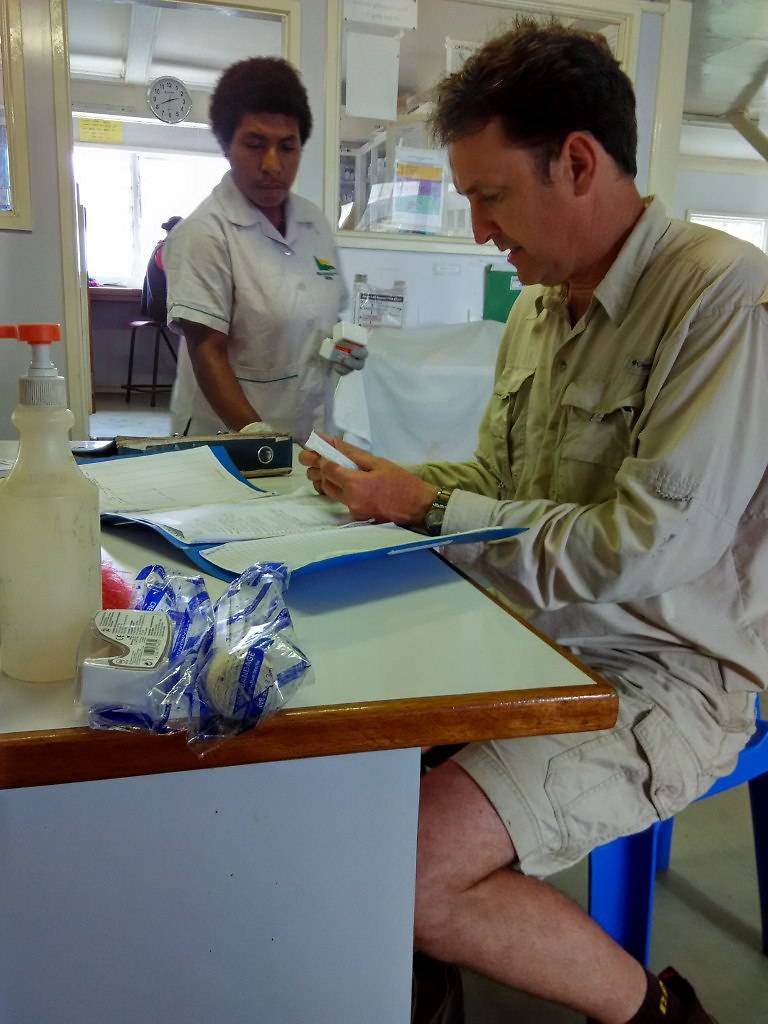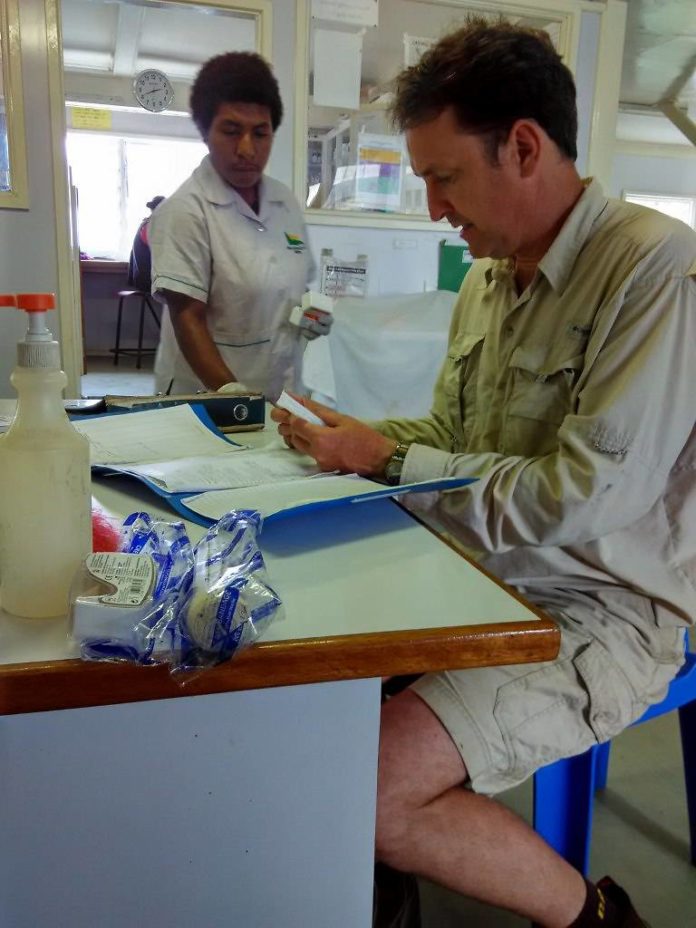SINGAPORE: In the Hebrew language, Yonah refers to a dove. Drawing on the name and its symbolism, one Singapore start-up aims to bring comfort and healing where it lands.
Yonah wants to achieve this through a cargo drone delivery system it is developing as a sustainable, reliable method of delivering measles vaccines to remote villages in Papua New Guinea. The country occupies the eastern part of the world’s second-largest island of New Guinea, some 160 km north of Australia and is vulnerable to nature’s wrath in the form of volcanoes, earthquakes and tidal waves.
Co-founder Ong Tian Chang, 30, told Channel NewsAsia in a recent interview that the genesis of the company came about even as he was at another start-up, Subnero, working on underwater wireless communications in 2015. Then, he was already interested in cargo drones but he did not know how to get the idea off the ground.
He later got to know of a Christian non-governmental organisation (NGO) called Mission Aviation Fellowship (MAF), and started an email correspondence with them in the hope of finding out more about their projects and how he could participate.
According to the NGO’s website, its pilots use Cessnas and Kodiak aircraft to deliver medicine and doctors, disaster relief, education, evangelists, Bible translators, food supplies, agriculture and clean water projects to “hardest-to-reach locations, where people live isolated from the rest of the world, cut off from the most basic necessities”.
AN UNLIKELY FRIENDSHIP
By the start of 2016, Tian Chang decided to leave Subnero and, during his “hobo” days, heard from MAF that he could come and take a look at their operations in Cairns, Australia, with another person.
Enter Mr Sim Zhi Min, 26, who didn’t know Tian Chang until he caught wind of his planned 18-day trip to Cairns and Papua New Guinea and volunteered to go along.
“We basically had 18 days to strike up a friendship – and good thing we did,” he laughingly recounted.
They eventually made the trip in March that year, and while in Papua New Guinea, visited the Kompiam Rural Hospital. The hospital’s website stated that it, together with 10 other health centres and aid posts, “is situated deep in the remote north of Papua New Guinea’s Enga Province, an area listed as one of the most disadvantaged in PNG”.
Tian Chang spent four days shadowing one of the doctors, Dr David Mills, to find out more about the hospital’s operations and how he could help them. Zhi Min, meanwhile, visited a separate remote health facility during this time, he added.

Dr David Mills is a respected figure in the community, having lived there with his family for 18 years. Here, he is seen prescribing medication for a young girl with meningitis at Kompiam Rural Hospital. (Photo: Yonah)
TOUGH TERRAIN, SUPPLY CHAIN WOES
Among the things they discovered was that the distance between the different health facilities and the warehouse outposts may appear near on a map, but the physical terrain there made it a nightmare to deliver healthcare supplies.
“I was a Guardsman in National Service (NS), and had experienced Brunei. If you thought Brunei’s topography was dense, Papua New Guinea’s topography is super dense,” Tian Chang described. Zhi Min, a Commando during NS and trained in reconnaissance, concurred.
They also discovered that the quality of logistics afforded to these healthcare facilities was not up to scratch.
Measles vaccines needed to be kept refrigerated at a temperature of between 2 degrees Celsius and 8 degrees Celsius, the co-founders found out, but oftentimes even if there are batches of vaccines that reach the health facilities, they are no longer effective as they were stored in warmer temperatures.
While Kompiam has about six such solar fridges, which helps alleviate some of these conditions, they “sometimes don’t work” or the staff on hand do not know how to maintain the equipment, Tian Chang related.
He added that these devices weigh 100 to 200kg, and are not the most portable of devices. The healthcare network is also reliant on logistics providers like MAF for their deliveries, and these are not fixed, given that the flight schedules are arranged such that every delivery trip will have to be maximised.
In other words, for MAF to deliver a shipment of vaccines or other healthcare supplies, they will need to make sure the return journey is also full through, for example, the pick up of coffee or other commodities, he explained.
One of the Mission Aviation Fellowship planes getting loaded with supplies. (Photo: Yonah)
TAKING FLIGHT SOON?
Faced with these challenges, the two returned to Singapore and founded Yonah in October of 2016. “Yonah exists to help rural hospitals move vaccines using cargo drones to reduce immunisable diseases,” said Tian Chang, spelling out the start-up’s mission statement.
So, how far along is it to achieving its stated goals?
Tian Chang shared that the team – two full-time co-founders and six NUS undergraduates helping out – is currently building out its cargo drone, or quad plane. One of its design features is the ability to take off and land vertically, as well as the ability to move forward and back in space, he said.
This allows Yonah to have two flight profiles: One to fly the package of vaccines, packed in a medical cooler box, and parachute it in to the destination, as well as the ability to land the drone at the drop site for the healthcare workers to conduct the vaccination exercise.
Of the six undergraduates, it enlisted the help of Sriram Sami back in August of 2016 and he is now its avionics lead and part of the core team. “He’s the only guy in the team who is actively developing and testing autopilot software based on the open source Ardupilot project,” Tian Chang pointed out.
He added: “Sriram wanted something more than just doing engineering for engineering’s sake. He wanted to make an impact with the work of his hands as a computer scientist.”
The deadline for the completion of the prototype cargo drone is the second half of this year, the co-founder said, adding that the team hopes to test the device in Papua New Guinea and study its deployment.
A closer look at the cargo drone, or quad plane, currently being developed by Yonah. It will be carrying a payload of 2kg and capable of vertical take-off and landing without ground infrastructure, the start-up says. (Photo: Yonah)
HELPING HANDS
He is also grateful that the start-up is even able to reach this stage of development, thanking the generosity of key sponsors such as the DSO National Laboratories and technology supplier Bosch.
The latter had earlier this month announced it offered financial support, product and technology sponsorship, as well as consulting, training and technical device.
Tian Chang noted that DSO is one of the first and main sponsors of the start-up, and that they were keen to support its endeavour as it saw the project allows undergrads to be exposed to this field of engineering work and, in turn, grow the local talent pool.
It had offered Yonah a “five-figure” sponsorship deal in December 2016, and committed to a second round of sponsorship the same time last year, he said.
“It’s nice to see the support from the defence research community,” the co-founder said, adding the gesture gave him “a lot of hope for the defence of our country” as DSO sees how even small projects like Yonah’s can eventually benefit the overall ecosystem.
These will all be for nought, though, if Yonah is unable to deliver on its mission statement – something that Tian Chang is keenly aware of.
“My baseline (expectation) is to leave a cargo drone delivery system behind for one hospital in Kompiam, to help with the delivery of vaccines,” he shared. “The ideal, though, would be to help more hospitals and increase the distance of our drones so that more people can be reached.
“Ultimately, we hope to implement a sustainable public health system that would go towards reducing the number of outbreaks from immunisable diseases like measles.”





